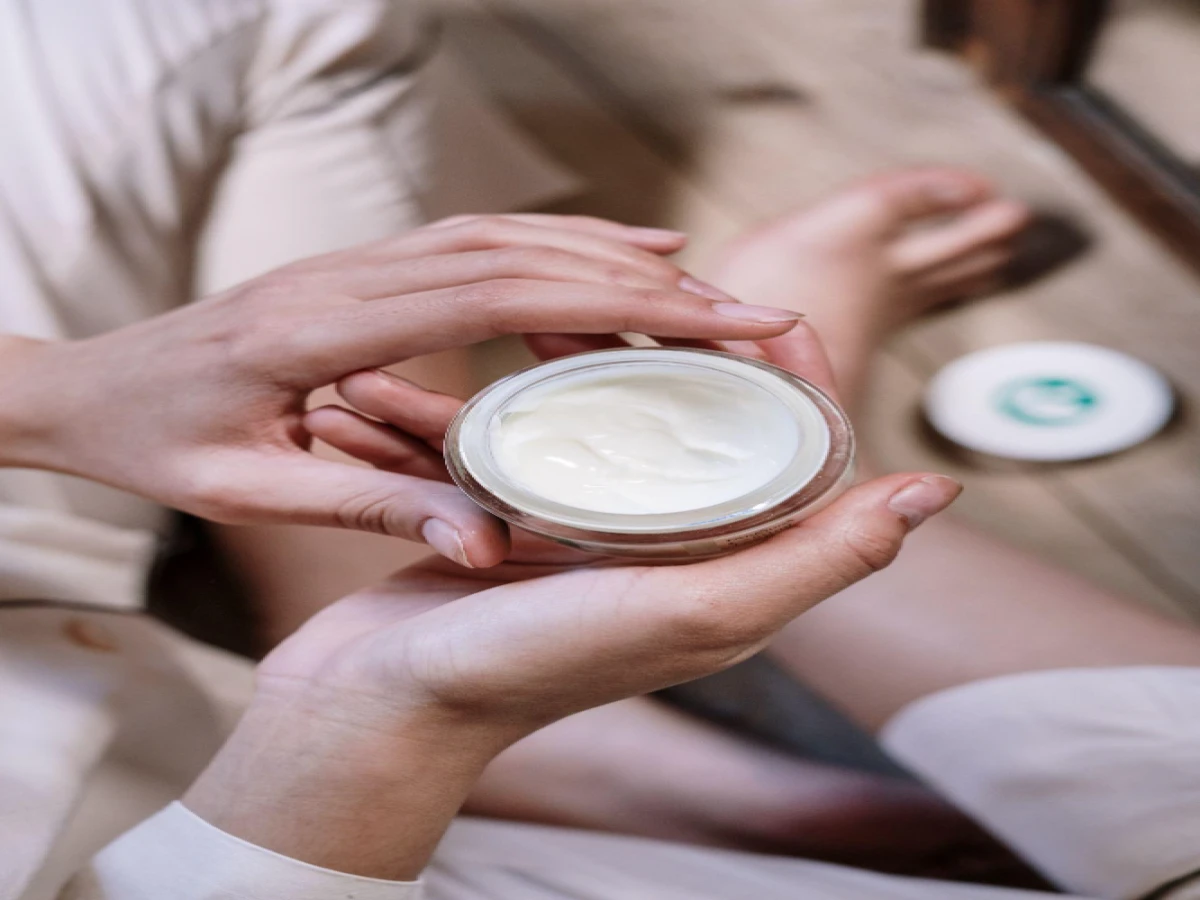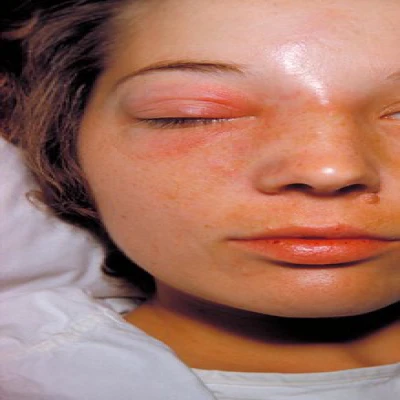مجلات علمية

Dermatitis is one of the most common noncontagious skin disorders that is characterized by skin inflammation and irritation which present with dry, itchy skin and rash.
It is stimulated by many factors such as stress, irritating substances, environment, and hormonal changes.
Health care workers are more susceptible to be affected with dermatitis due to frequent washing and drying of the skin which changes the PH of the skin and deprives the skin of natural protective oils.
types of dermatitis
There are several types of dermatitis but the most common types are:
1- Atopic dermatitis eczema
This is the most common type of Dermatitis which is characterized by dry, itchy skin with rough patches.
Atopic dermatitis is an inherited disorder so it appears early in infancy.
2- Contact dermatitis
This type of Dermatitis is an allergic reaction of the skin with chemical substances which cause skin irritation.
Contact dermatitis is characterized by rashes with burning, stinging, and itching sensation or blisters.
3-Seborrheic dermatitis
This type occurs most commonly on the scalp but may also occur on the face or the chest.
Seborrheic dermatitis is known as cradle cap in babies and is characterized by dandruff, red skin, and scaly batches.
4-Dyshidrotic dermatitis
This type of Dermatitis occurs more commonly on the feet and hands and is characterized by itchy red skin with small blisters.
5- Other less common types of dermatitis
1-neurodermatitis
This type is triggered by stress and skin irritating substances which cause itchy patches on the skin.
2-Stasis dermatitis
This type of dermatitis occurs due to low blood circulation causing skin changes.
3-Nummular dermatitis
Skin injury results in oval sores on the skin.
4-Dermatitis neglecta
Skin disorder results from poor personal hygiene.
Causes of dermatitis
There are many causes of dermatitis depending on the type.
1- Causes of contact dermatitis
Allergic reaction results from direct contact of the skin with irritants and allergens such as cosmetics, detergents, poison ivy, and oak.
2-Causes of eczema
Eczema is more common in people with a family history of eczema, asthma, or allergies.
Eczema is triggered by environmental changes or bacterial infection of the skin.
3-Causes of seborrheic dermatitis
This seasonal dermatitis is caused by fungus in the oily gland and flares up in the spring and winter.
4-Causes of stasis dermatitis
When blood circulation is poor especially in the extremities such as lower leg and feet, skin changes occur causing stasis Dermatitis.
Prevention of Dermatitis
1-Prevention is better than cure so you need to know how to avoid dermatitis by avoiding exposure to allergens and substances that cause skin irritation and rashes like poison ivy.
2-But if you already have dermatitis, do your best to avoid flare-ups by avoiding scratching to prevent the spread of the bacteria to another part of the body.
3-Keep your skin moisturized by a warm path and frequently apply water-based or oily moisturizing creams and lotions.
4-Get the habit of wearing gloves when dealing with chemical substances or when you are outside to protect your skin from allergens and environmental changes.
5-Apply moisturizing sunscreen daily to protect your skin from damage and dryness.
6-Wear cotton comfortable clothes to avoid skin irritation.
Diagnosis of Dermatitis
Doctors may diagnose dermatitis by just looking at the skin lesions and taking a medical history from the patient.
To detect the allergic reactions of the skin to different substances, your dermatologist will do a skin patch test in which the doctor will put small amounts of different substances on your skin and see the results after a few days to see allergic reactions.
Skin biopsy is useful in the diagnosis of dermatitis by taking a small sample of the affected skin to be examined under a microscope by the doctor.
Home remedies for dermatitis
1- Apply cool and wet clothes on the affected area of the skin to reduce discomfort and itching.
2- add baking soda to a cool bath to reduce itchy and inflammation.
3- apply coconut oil or glycerine to moisturize your skin and reduce dryness.
4-Avoid exposure to triggers to avoid flare-ups.
5-Acupuncture is an old Chinese invasive method that triggers specific parts of the skin with needles and can treat variable disorders including allergies so it's useful in treating dermatitis.
6-Massage and yoga can treat dermatitis by reducing stress.
7-Avoid dietary elements that cause allergic reactions to manage the symptoms.
8- Eat foods rich with antioxidants like tomatoes, carrots, beans, and blueberries and omega 3 rich foods like salmon which help your skin to be healthier.
9- Petroleum jelly is mineral oil when applied on the skin, it provides a protective layer and helps to heal dry irritated skin patches.
Treatment of Dermatitis
Treatment of dermatitis may take a long time so you need to manage symptoms to avoid flare-ups with treatment by avoiding hard frequent scratching which may cause open sores on the skin and secondary bacterial infection.
1-Treatment of Dermatitis depends mainly on the cause, severity of the symptoms, and type.
2- Antihistamines such as diphenhydramine are effective in treating dermatitis by reducing allergies and itching.
3-Topical creams containing steroids such as hydrocortisone relieve itching and inflammation.
4-Antibiotics and antifungal medications are taken when secondary bacterial infection occurs due to skin scratching.
5-Oatmeal baths are an old Roman method that uses special oatmeal formulations for skincare that have anti-inflammatory, antioxidant and moisture-retaining properties.
Oatmeal formulations have antiviral activity and reduce the released histamine in the mast cells.
They have buffering agents which restore the normal PH of the skin and provide deep cleaning of the skin.
6-Moisturizers for dry skin such as Nivea soft moisturizing cream.
7-Dermatologist may prescribe dietary supplements like vitamin D and probiotics which are friendly bacteria with health benefits that help to colonize your gut with good microorganisms.
You can get probiotics from supplements or foods such as kefir, yogurt, tempeh, or kimchi.






